The Effect of ASIN Stockouts on Amazon Product Rankings

One of the most worrisome moments for Amazon sellers comes when they're facing a potential stock outage. What will the effect of those stock outages be on search rankings when the product does come back? Will rankings resume where they were or will they tank? In this article, we'll examine the effect of stockouts on numerous ASINs, look at the before and after performance, and try to determine the effect of stockouts.
Contents
Before and After Stockout Performance
We looked at five ASINs across three accounts and multiple product categories that experienced stock outages within the last year. We looked at stock outage periods ranging from a couple of days to several months. We then looked at these items' sales rank before and after the stock outages.
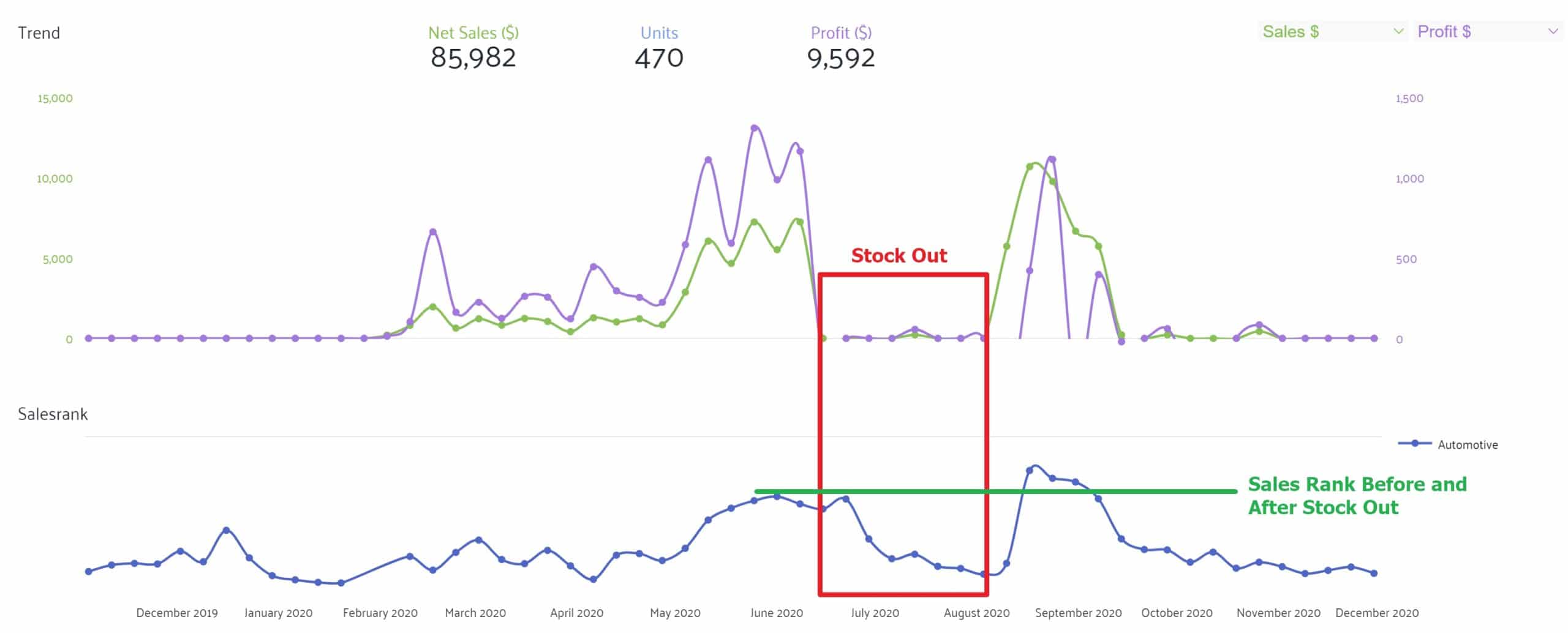
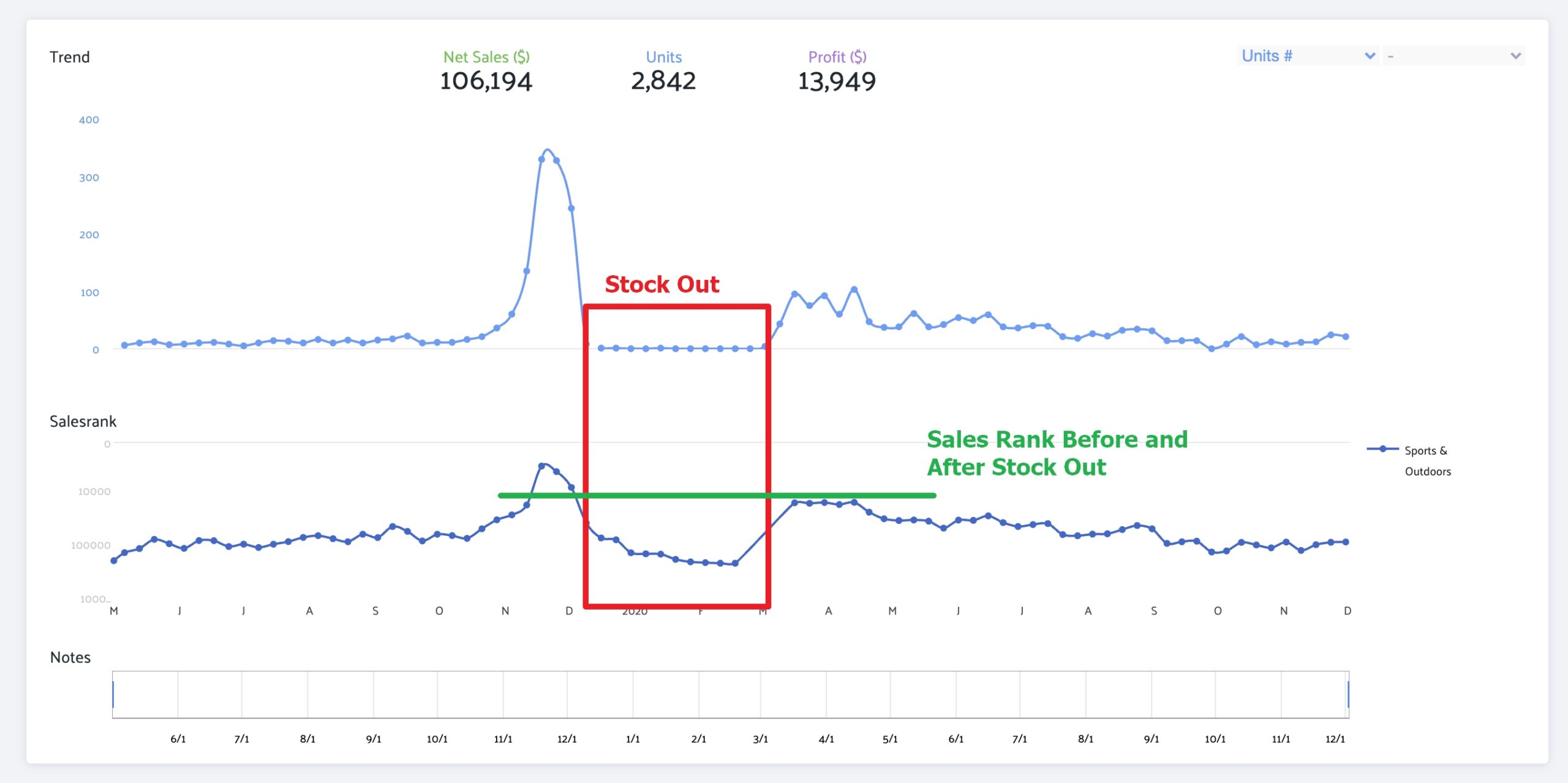
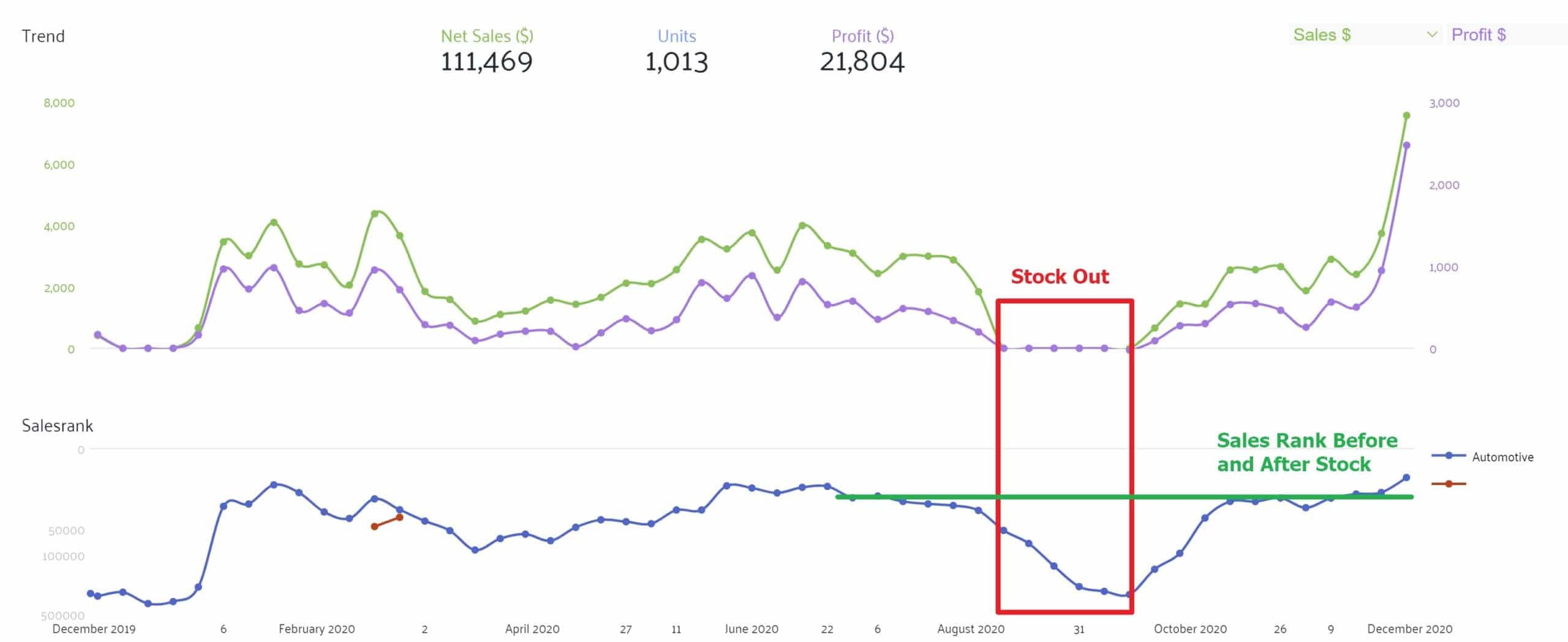

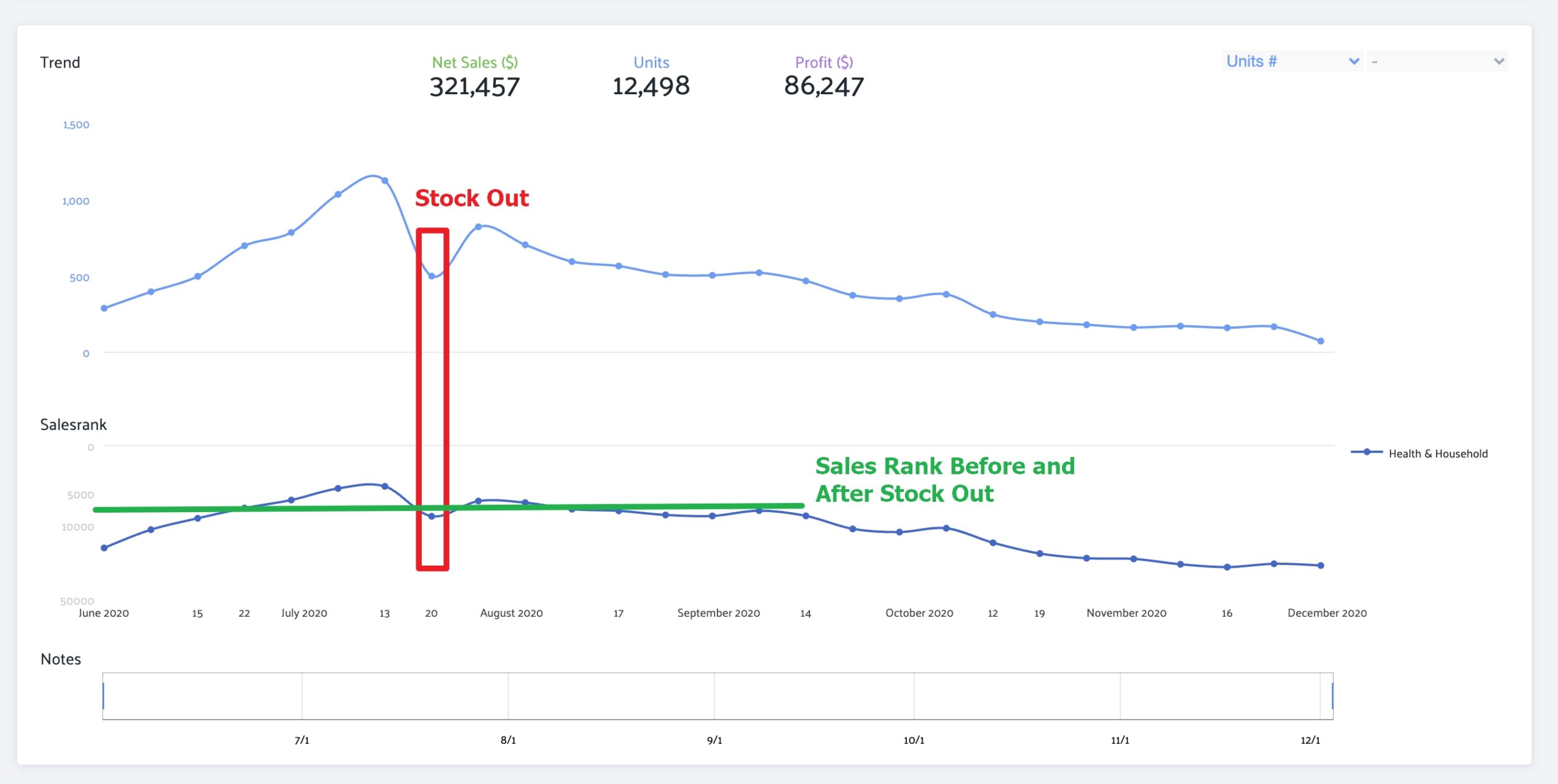
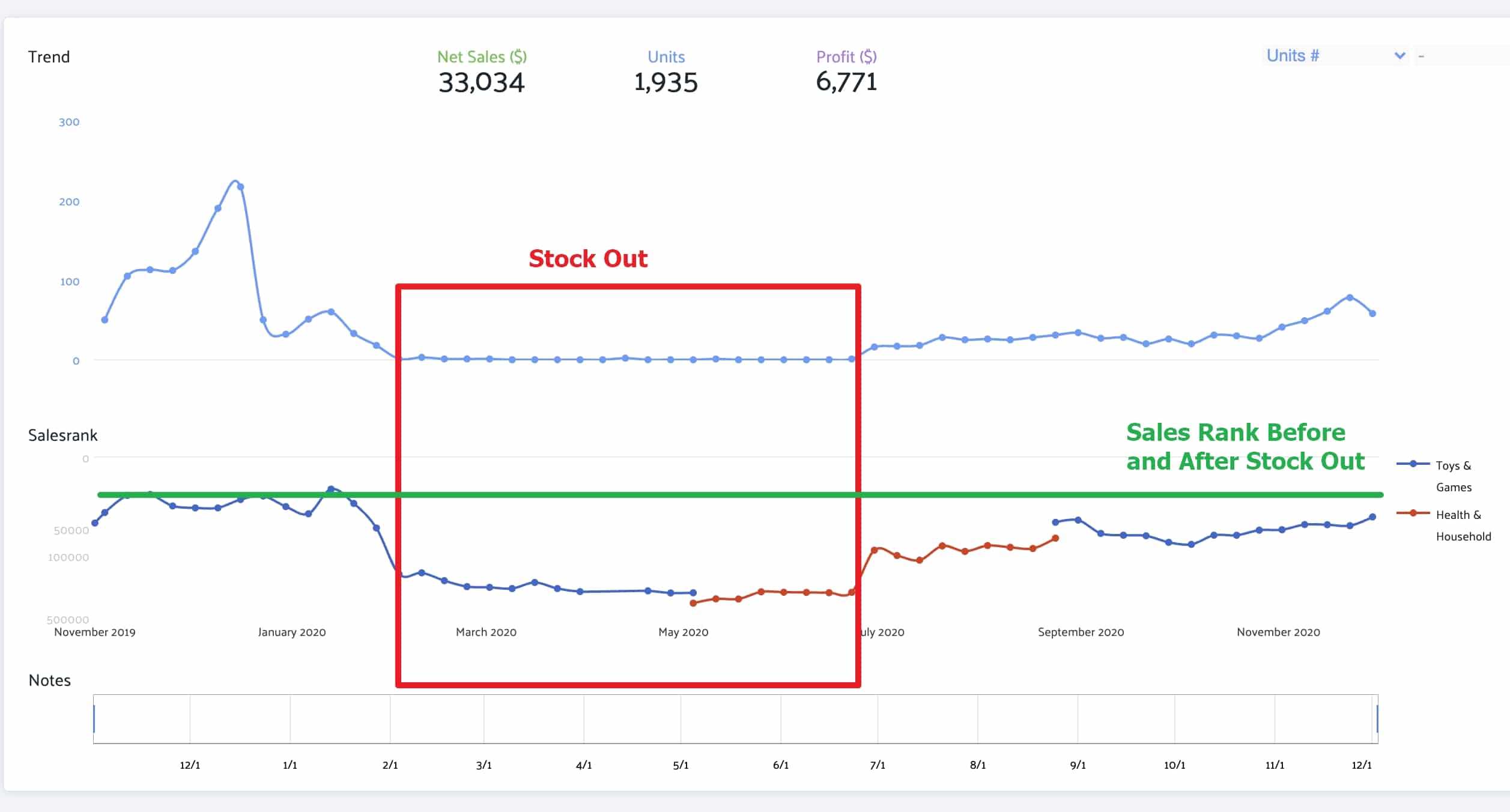
Interpretation of Results
Based on our analysis, we can conclude a few things:
- Items almost always recover their sales rank that existed prior to the stock outage within four weeks after the stock outage
- There is no significant penalty, short term or long term, for being out of stock on a product.
- There is no greater or lesser penalty for longer or shorter stock outages.
Why Do Sellers Think That Running Out of Stock Affects Performance?
Our conclusion that running out of stock of a product rarely hurts product performance is contrary to the widely held assumption that running out of stock is a devastating event in the life of an ASIN. Why then do sellers hold this assumption? I believe they do so for a few reasons:
- Stock outages in the past may have been punished more heavily by Amazon's algorithm than they are now.
- Short-term demand spikes due to holidays and seasonality often lead to an unexpected stock outage. When the item comes back in stock, this short term spike has disappeared and sellers blame it on being out-of-stock.
Does Running Out of Stock EVER Affect Product Performance?
Claiming that running out of stock never affects product performance is a very bold assertion. It's one that I'm hesitant to categorically say as unfortunately, I have heard many stories of products never recovering their sales rank after being out-of-stock. In ultra-competitive categories, the penalties for being out-of-stock may be more severe, but these are definitely the exception and not the rule.
Should You Raise Prices to Avoid Running Out of Stock?
Facing a potential stock outage, you can do one of three things: raise prices to slow demand, keep prices steady and let the item run out of stock naturally, or a hybrid model of pausing PPC campaigns to increase margins and also lower demand.
| ACTION | Pros | Cons |
|---|---|---|
| Raise Prices | The product doesn't go out of stock. You make more profit margin. | Sales velocity is (potentially) lowered when the product comes back in stock. |
| Do Not Raise Prices | Sales velocity remains consistent and (potentially) maintains that consistency when the product comes back in stock. | You run out of stock. No increased margin. |
| Do Not Raise Prices, Turn off PPC. | Sales velocity is lowered less than raising prices. Margins are increased. | Lower sales velocity than leaving PPC on and not lowering prices. More work to monitor and pause PPC campaigns. |
Ultimately, whether you raise prices or reduce/eliminate PPC will almost certainly hurt your sales velocity and rankings until your item runs out of stock which will be reflected on your sales velocity and rankings once your item comes back into stock. You may or may not be able to recover those rankings once you're back in stock but there will almost certainly be some negative effect of raising prices and/or reducing PPC spend.
Generally, it's assumed that raising prices has a more negative effect on ranking than reducing or eliminating PPC because PPC sales are not weighted as equally as organic sales for organic rankings.
Whether you keep prices and PPC as-is when faced with an impending stock out or raise prices/pause PPC comes down to a complicated equation of what your expected increased profit is from raising prices/pausing PPC and what your loss in profit will be from the loss in rankings when your item comes back into stock. Personally, I am of the opinion that most sellers are so focused on rankings and revenue and lose sight of profit that an impending stockout is a great time to experiment with higher prices.
Conclusion
Stockouts are not the devastating event for Amazon sellers that they once were. There may be exceptions, but the vast majority of sellers will recover their rankings for a product quickly after restoring stock.
What has your experience been with stockouts? Have you ever been in a situation recently where you did not recover your rankings after running out of stock?




Great post! My experience has been different—when an ASIN runs out of stock, it never recovers no matter what I do. This has happened to me multiple times, with different ASINs and across various marketplaces over the last 5 years. Canada is the only exception; when my ASIN runs out of stock there, it recovers quickly. The US is the worst marketplace in terms of recovery.
Yep, which kind of makes sense that the least competitive marketplaces are the least punitive for this type of thing.
Great post thanks for sharing useful information with us.I like to read your articles.
Thank you! I hope you continue to like our content.